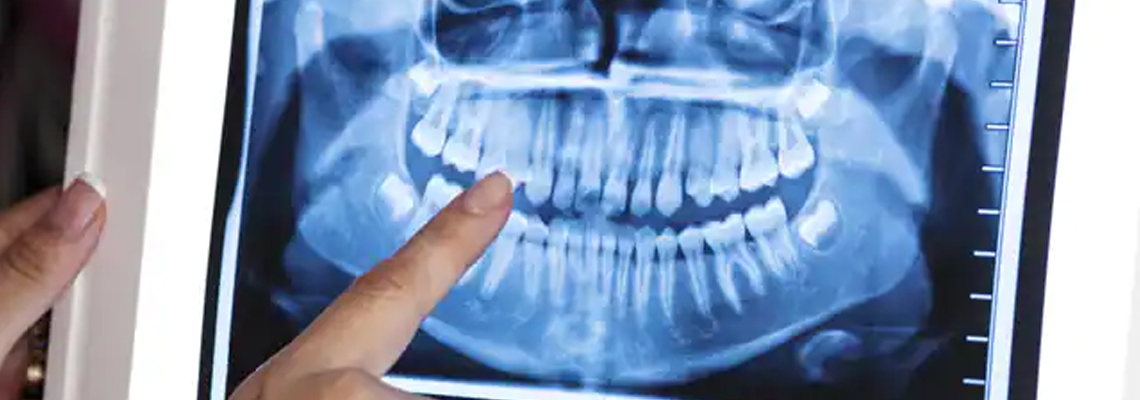Hyperdontia: How to Treat Too Many Teeth?

One tooth problem you may not have heard of is hyperdontia. It means that a person has more teeth coming in than is expected. Even if you don’t have hyperdontia, learning about how it is treated can be interesting.
The Basics and Symptoms of Hyperdontia
As was said, having more teeth than usual is part of hyperdontia. Supernumerary teeth are the name for these extra teeth, which usually grow along the tooth arches. For comparison, dental arches are the curved parts of the mouth where the teeth meet the jaw. Most of the time, extra primary teeth (also called “baby teeth” or “deciduous teeth”) are the cause of hyperdontia. Still, it is possible to have more adult teeth (teeth that stay in your mouth for life).
Hyperdontia doesn’t usually hurt, which is a good thing. But it can if the extra teeth put too much pressure on the gums and mouth. Hyperdontia is a strange thing because it happens twice as often in guys as in women.
Classifying Hyperdontia
Dentists like Dr. Motiwala identify hyperdontia by where the extra teeth are and how they look.
The paramolars are the back teeth that grow next to the molars. Distomolars grow in the same direction as the other molars, not beside them. Mesiodens grow next to or behind your front teeth, which are called incisors. Most people who have hyperdontia have mesiodens.
The teeth can have any of the following shapes:
- Compound odontoma – A growth that looks like several teeth and is close to each other.
- Complex odontoma – A jumbled bunch of tissue that looks like teeth but isn’t actually teeth.
- Conical – The shape of a cone or a peg.
- Supplemental – It looks like the tooth it grows next to.
- Tuberculate – The shape of a tuberculate is like a barrel or tube.
Most people with hyperdontia have just one extra tooth that is stuck in the gum. Some figures say that there are only two extra teeth 12–23% of the time and less than 1% of the time there are more than two.
Causes of Hyperdontia
Experts still don’t know what causes hyperdontia, but it happens more often in people with certain inherited diseases. Among these are Ehlers-Danlos syndrome, Gardner’s syndrome, Fabry disease, cleidocranial dysplasia, Ellis van Creveld syndrome, Rubinstein-Taybi syndrome, Nance-Horan syndrome, trichorhinophalangeal syndrome, and cleft mouth or lip. It also seems that hyperdontia runs in families.
Diagnosing Hyperdontia
Before Dr. Motiwala can come up with a plan to treat your hyperdontia, he will need to figure out what’s wrong with it. When the teeth are fully grown in, it will be easy to tell because the extra teeth will be easy to see. If not, you might not know you have hyperdontia until you get an X-ray. After hyperdontia is found, Dr. Motiwala may take more X-rays or CT scans to get a better look at the area.
Treatment Is Not Always Necessary
Hyperdontia does not always require treatment. As long as you’re not in pain and the extra teeth aren’t getting in the way of how your mouth works, you can leave them alone. During the first step of your analysis, you’ll notice that your dentist will also ask you about weakness, swelling, discomfort, or pain in your mouth. You can keep the extra teeth if nothing seems to be wrong with them.
Medicine Can Help With Pain
In some cases, having hyperdontia will only cause mild pain and nothing else. In that case, your dentist may suggest that you take aspirin or a nonsteroidal anti-inflammatory drug to ease the pain. Depending on how bad the pain is, the dentist may give you the choice of having the extra teeth taken out.
The Common Treatment – Removing the Extra Teeth
When hyperdontia does need to be treated, the extra teeth are usually taken out. Dr. Motiwala may recommend this medicine for a number of reasons. Most of these things are bad for your mouth health or get in the way of your daily life in some way. For example, if you have pain or soreness because your mouth is too full, this is a good way to treat it.
You may also want to get rid of the extra teeth if they make it hard for you to chew. Some people with hyperdontia can’t chew right because they have too many teeth, and others cut their mouths when they chew because they have too many teeth. This is important because having too many teeth can cause problems with the way your jaw is set up and how you bite. Some people with genetic problems may also need to have the extra teeth taken out. When the extra teeth are bad for your oral health as a whole, they need to be taken out. Most often, this happens when they make it hard to brush or floss your teeth properly. If you did that, you would raise your chances of getting gum disease and tooth damage.
Another possibility is that the extra teeth are blocking permanent teeth that need to come in. This can stop the tooth from coming in or make it come in at an odd angle. The second one could make your mouth hurt or cause other problems. If you don’t get rid of the teeth right away, they could also make your teeth too close together, which could mean you need orthodontic treatment. Most dentists are also happy to take out extra teeth that aren’t hurting you but make you feel bad about yourself.
Some doctors always suggest that people with hyperdontia get their extra teeth taken out for their oral health. When you have more teeth, you are more likely to get cavities, tooth illnesses, and other problems with your mouth. This is also because cystic tumors or lesion-like growths could form around the extra teeth.
Orthodontic Treatment Is Also Possible
Most of the time, removing the extra teeth is the best way to treat hyperdontia. However, in some cases, dental treatment may be needed instead of or in addition to tooth removal. This will depend a lot on where the extra teeth are, how they are making you feel, and how they are affecting your regular teeth. Due to the overcrowding that comes with hyperdontia, you may need to have the extra teeth taken out and then get orthodontic treatment. Dr. Motiwala can tell if you have hyperdontia and help you figure out the best way to treat it, if you do. You can make an appointment at one of our dental offices in Chicago to talk to a dentist.

Dr. Motiwala in International Press
To access the article, kindly click the logo of the NEWS website below.
 |
 |
 |
Don’t Wait, Contact Us Now!
Dial +91 99596 14584 to speak with Dr. Motiwala Dental Clinic & Implant Center about your treatment choices and avoid paying any sinus lift costs in India. Contact us using the form on our CONTACT US page, and we’ll get back to you as soon as we can with the information you require.

